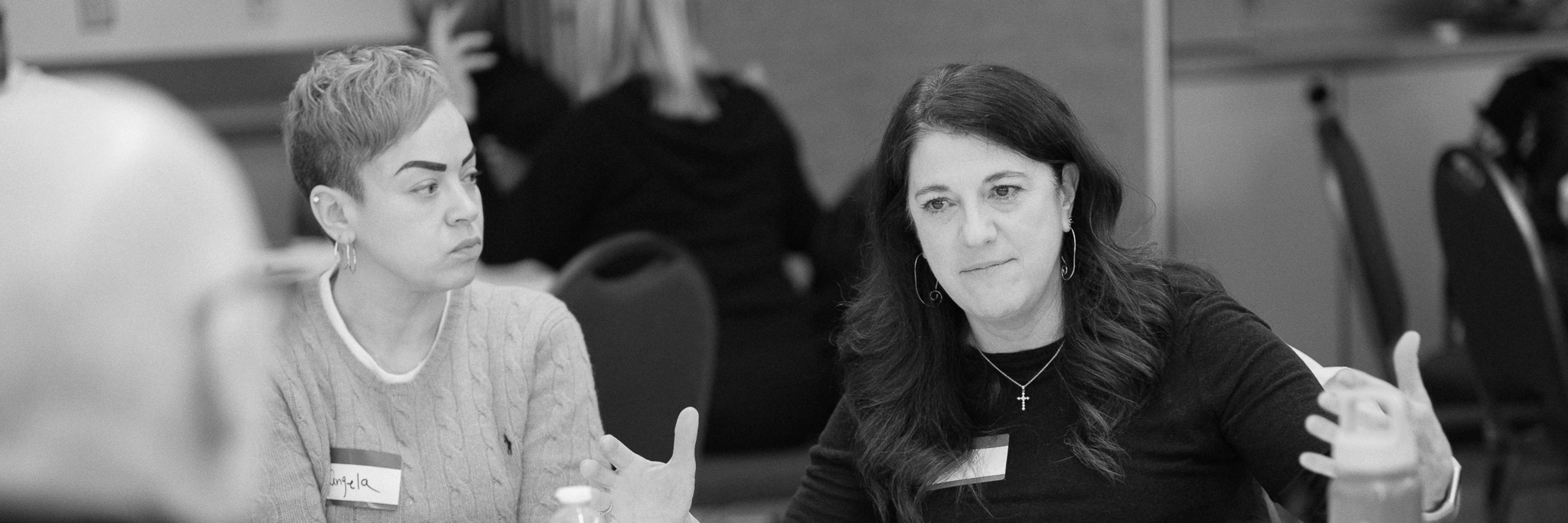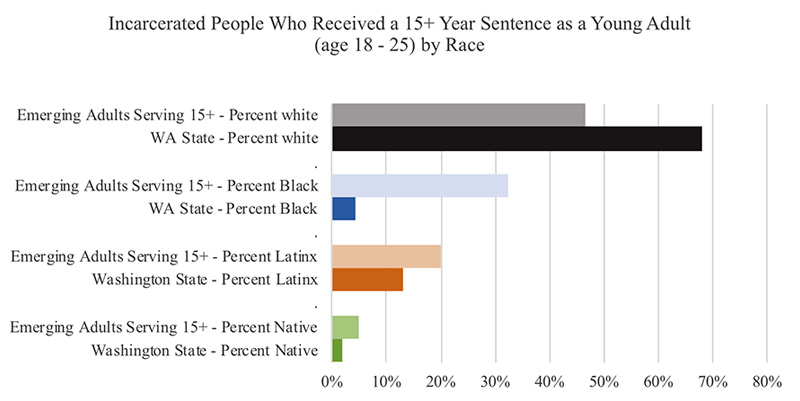Contact
Office
PO Box 7358 Tacoma, WA 98407
Donate
Menu

Scientific evidence shows that the brain is rarely fully developed prior to the age of 25. As a society, we do not trust young adults to rent cars or purchase nicotine and alcohol. Yet, our legal system ignores scientific research showing that brain development is not complete until people reach their mid to late 20s, and that young adults are especially susceptible to impulsive behavior and peer influence – but also capable of growth and maturation.
In Washington State, young adults of color are given disproportionately long sentences. For example, while Black people comprise just 4.3% of the population of Washington State, they make up 32.4% of those currently incarcerated serving a 15+ year sentence given to them as young adults.
Second Chances for Young Adults will help move Washington towards racially just, evidence-based sentencing practices by giving young adults who have demonstrated accountability and rehabilitation a second chance.

Beginning in the 1990s, the Washington State Legislature started enacting “tough on crime” legislation. During this time, the distinction between juveniles and adults in the criminal legal system was blurred, including in the use of prior juvenile adjudications to increase sentence length. This trend was largely driven by misguided fears regarding child “super predators”—the racist myth that children who committed crimes, particularly Black children, were dangerous and unable to be rehabilitated.
The use of juvenile adjudications in adult sentencing calculations has meant that Black and Indigenous People of Color often receive longer sentences as a result of prior juvenile convictions. Indeed, in Washington Youth of Color are more likely to have juvenile records than their white counterparts
Fresh Start for Youth legislation would rectify this outdated practice by retroactively eliminating the use of juvenile adjudications in adult sentencing and discontinuing the practice moving forward.